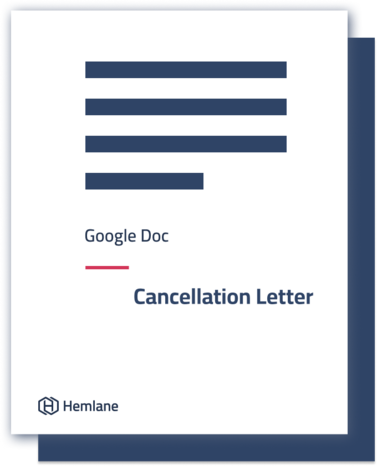
Property Management Agreement Cancellation Template
Agreement cancellation template for rental owners.
If you’re looking to terminate the agreement between you and your property manager, sending them a cancellation letter may be the next step for you and your rental property. Whether you are moving to a new property manager or looking to reduce your costs by managing your own properties, it is important to review your property management contact then send your property manager a written notice of termination. Having a written notice protects both sides from any confusion and provides a record for both parties.
We’ve put together a comprehensive list of best practices and an easy to use template to help you create your property management termination letter.
When preparing your documents, you should consider:
Can I cancel my property management contract?
Before you send any cancellation notices, reviewing the cancellation policy will allow you to proceed accordingly with your property manager. We've found a termination fee is common, especially if it's the first year, as many property managers require an annual contract.
How should I send my letter of cancellation to my property manager?
Typically, sending emails to your property manager is a great way to communicate with them as it provides them with a way to respond and confirm receiving the documents. If you don't receive a response within 48 hours, you may want to follow-up by sending a certified letter.
How many days in advance should I give to terminate my property management agreement?
Most property managers have contracts that require 30 days notice for termination and/or have a termination fee. By reviewing your agreement you have in place, this will help you determine if a termination fee is applicable.
What are some documents I should request from my property manager?
- Your tenant’s contact information
- Copies of the tenant’s application and lease (including any renewals and addendums)
- Property inspections and corresponding photos
- Maintenance records for the property
- Proof of tenant’s renters’ insurance coverage
- Financial ledgers and reports
- HOA forms and agreements
Switching property management doesn't need to be as stressful as it sounds, we've put together an article and checklist to provide insight on the easiest way to change property management.